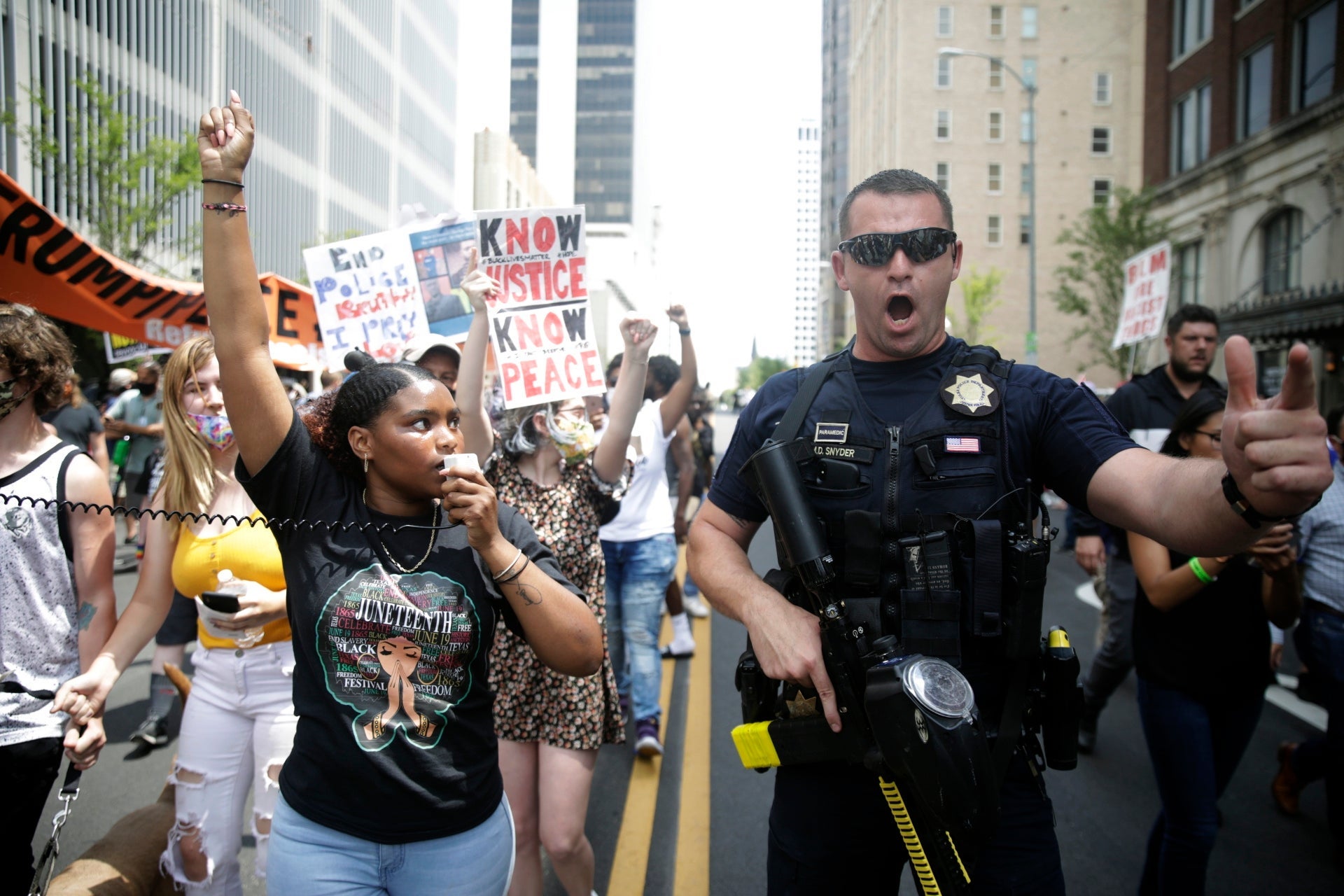Twitter suspends DDoSecrets account which shared hacked data from FBI
The 269GB collection of documents posted span 24 years, from 1996 to 2020.

Your support helps us to tell the story
From reproductive rights to climate change to Big Tech, The Independent is on the ground when the story is developing. Whether it's investigating the financials of Elon Musk's pro-Trump PAC or producing our latest documentary, 'The A Word', which shines a light on the American women fighting for reproductive rights, we know how important it is to parse out the facts from the messaging.
At such a critical moment in US history, we need reporters on the ground. Your donation allows us to keep sending journalists to speak to both sides of the story.
The Independent is trusted by Americans across the entire political spectrum. And unlike many other quality news outlets, we choose not to lock Americans out of our reporting and analysis with paywalls. We believe quality journalism should be available to everyone, paid for by those who can afford it.
Your support makes all the difference.Twitter has banned a group that was leaking years of records from police departments.
The group, called the Distributed Denial of Secrets (DDoSecrets) published documents from 200 law enforcement agencies.
Twitter removed the account from its platform for “violating our rules against distribution of hacked material.”
“We don’t permit the use of our services directly distribute content obtained through hacking that contains private information, may put people in physical harm or danger, or contain trade secrets” reads an email apparently sent to the group.
The 269GB collection of documents posted span 24 years, from August 1996 to June 2020.
The documents showed that the FBI monitored the social media accounts of protestors and sent such information to law enforcement.
Other documents show the FBI tracking bitcoin donations to protest groups.
It also warned that white supremacist groups are posting as anti-facist protectors in order to incite violence.
“Our initial analysis revealed that some of these files contain highly sensitive information such as ACH routing numbers, international bank account numbers (IBANs), and other financial data as well as personally identifiable information (PII) and images of suspects listed in Requests for Information (RFIs) and other law enforcement and government agency reports” the National Fusion Centre Association (NFCA) said.
Fusion centres are bodies managed by government which shares law enforcement and public safety information between law enforcement organisations.
“Preliminary analysis of the data contained in this leak suggests that Netsential, a web services company used by multiple fusion centers, law enforcement, and other government agencies across the United States, was the source of the compromise,” the NFCA also wrote.
“Netsential confirmed that this compromise was likely the result of a threat actor who leveraged a compromised Netsential customer user account and the web platform’s upload feature to introduce malicious content, allowing for the exfiltration of other Netsential customer data.”
DDoSecrets co-founder Emma Best, from a separate account, tweeted that the group has “worked with dozens of major news outlets across the world and published terabytes of data uncovering money laundering schemes, corruption, and more.”
“Now we're being censored for publishing the #BlueLeaks files about law enforcement”.
Best also told Wired that the group removed approximately 50GB of data that included details about crime victims and health information, as well as information about private businesses, health care, and retired veterans' associations.
Twitter’s policy against accounts that leak information has not been consistent. As Ars Technica notes, the WikiLeaks account – which released hacked data from the Democratic National Committee – remains operational.
Best notes that the documents reveal controversial practises conducted by the police, if not illegal ones, such as describing white nationalists ‘anti-Antifa’, rather than accepting that ‘Antifa’, a shorthand for “anti-fascist”, already stands in opposition to white nationalists.
“I've seen a few comments about it being unlikely to uncover gross police misconduct, but I think those somewhat miss the point, or at least equate police misconduct solely with illegal behavior. Part of what a lot of the current protests are about is what police do and have done legally,” Best said.
Join our commenting forum
Join thought-provoking conversations, follow other Independent readers and see their replies
Comments